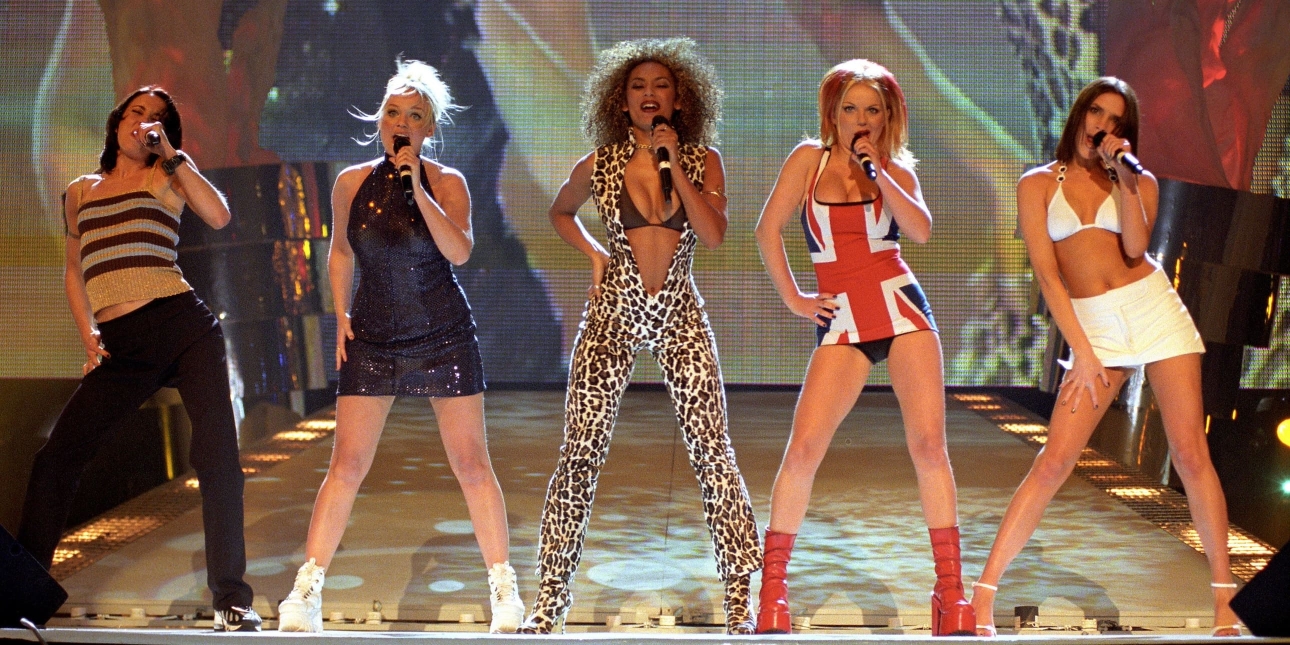What we can learn from the pop PR juggernaut of the Spice Girls
From Pepsi to Polaroid - you name it and the Spice Girls were part of it back in the ‘90s
The Spice Girls’ unwavering self-belief propped up alongside powerful pop hits saw the birth of not only the best-selling girl group in history but a marketing phenomenon that went on to have a lasting impact on the music industry.
The Wannabe hitmakers’ message of confidence, friendship and loyalty – which aptly led to their ‘girl power’ mantra – was an instant hit with pre-teens across the globe who were keen to replicate their style as well as sing their songs into a hairbrush. And yes, reader, I was one of them.
So, when the five-piece signed deals with the likes of Pepsi, Walkers, Asda, Chupa Chups and Cadbury, to name but a few, it was no wonder that they were hailed the “most merchandised group in music history” by Marketing Week in October 1997.
All this came in a little over a year since they first shot to fame – which meant it was clear that the Spice Girls were more than just a pop group – they were a brand.
As 2024 marks 30 years (feeling old, yet?) of the band forming, they are still popular figures in the press; most recently causing a stir when all five reunited for the first time in six years at Victoria Beckham’s 50th birthday party.
No sooner had hubby David Beckham posted the video of them singing one of their greatest hits to Instagram, had the clip been shared, screenshot and sent among millions worldwide.
“David you are the best social media manager out there, thank you for giving the people CONTENT,” one of his followers wrote.
Well, rewind to the summer of 1996 and ‘content’ came in a completely different form. There was no social media. No TikTok, expletive rants on X or likes on Facebook – just five young women with a dream, an empowering message they wanted to spread and a prolific marketing phenomenon at their feet.
Talk that talk
The Spice Girls were relatable. They were us. They were a burst of technicolour magic in a black and white world of Britpop and boybands. And they took their destiny into their own hands; from hiring and firing management to using the press to their advantage. In 1997, when then-editor of Top of the Pops, Peter Loraine, referred to three of them as ‘scary, posh and sporty’, they ran with the nicknames that they then became more familiarly known as.
Sporty, Scary, Ginger, Posh and Baby were fiery, transparent and authentic. Qualities that that their former PR manager Nicky Chapman was drawn to. While speaking on Kate Thornton’s White Wine Question Time podcast, Nicky said: “They [the Spice Girls] believed in what they stood for and girl power came from them. It was all them.”
The Spice Girls were loud, proud and didn’t shy away from having their say promoting safe sex and girl code for the ‘90s in their self-penned lyrics.
That’s Asda price
The Spice Girls’ longtime manager Simon Fuller was quoted as saying that sponsorship deals were “far more about exposure than the money” in David Sinclair’s 2004 book Wannabe: How The Spice Girls Reinvented Pop Fame.
“A lot of money was made, but my thinking was if we can get Pepsi to spend $40 million basically running what was a commercial for my group, then hallelujah,” he said.
They used personality as power while remaining positive and consistent in messaging. Their whole ‘seize the day’ attitude made sure opportunities weren’t missed and merchandise and concert tickets were priced in a way that made the group accessible to their target audience.
Thinking of the bigger picture, they even partnered with the supermarket your mum would most likely do the weekly shop at.
In September 1997, Asda signed a £1 million merchandising deal to launch a wide range of Spice Girls products for the Christmas season. More than 40 different Spice Girls-branded goods were stocked ranging from clothes, stationery, party supplies, Christmas crackers, pizzas, books, bedding, platform shoes and Spice Girls-branded Kids’ Meals Boxes in the stores' restaurants. Even helium balloons could be bought with the face of a different member on. (Flashback to seven-year-old me running to our local Asda one Saturday afternoon).
The number one lesson from the Spice Girls’ PR was to be unapologetically yourself, coupled with strong branding based off this.
Fast forward just over 10 years and Rolling Stone voted ‘Girl Power’ as the second most important movement for the Millennial generation.
They may have said: ‘If you want my future then forget my past,’ but in this instance, their past will always be a powerful reminder of how to make a lot of money while having fun.
 Clare Butler has worked as a senior journalist and content editor at regional newspapers across the UK for the last nine years. She is currently junior account manager at Stafford-based award-winning PR and content marketing agency Edson Evers. The firm celebrated its 50th anniversary in 2022. You can follow Clare on X.
Clare Butler has worked as a senior journalist and content editor at regional newspapers across the UK for the last nine years. She is currently junior account manager at Stafford-based award-winning PR and content marketing agency Edson Evers. The firm celebrated its 50th anniversary in 2022. You can follow Clare on X.
.jpg&w=728&h=90&maxW=&maxH=&zc=1)
